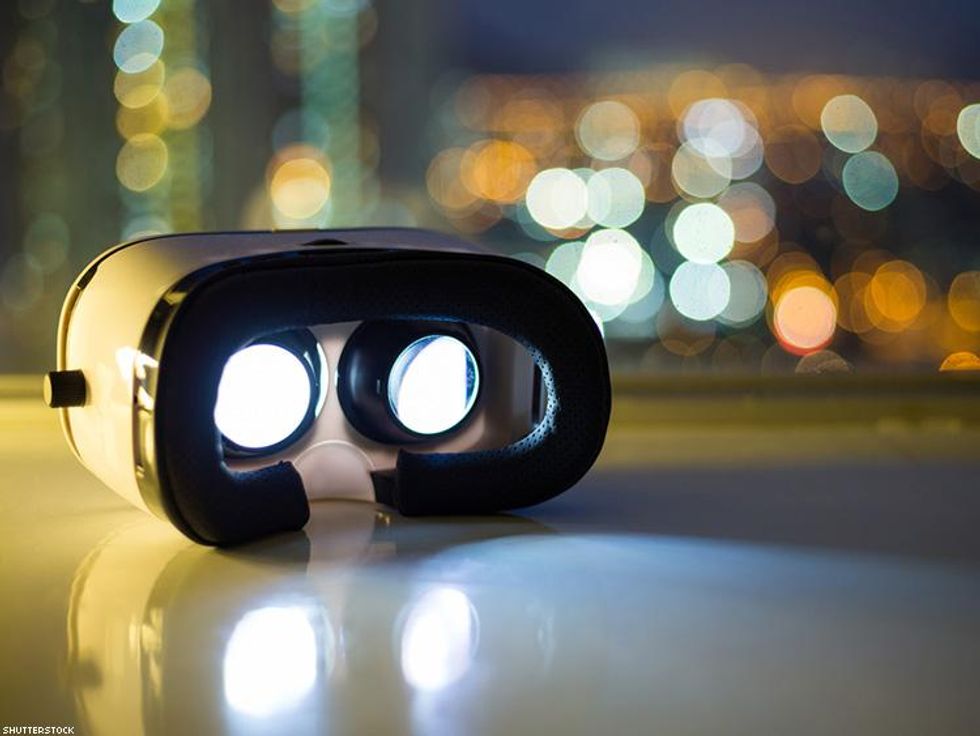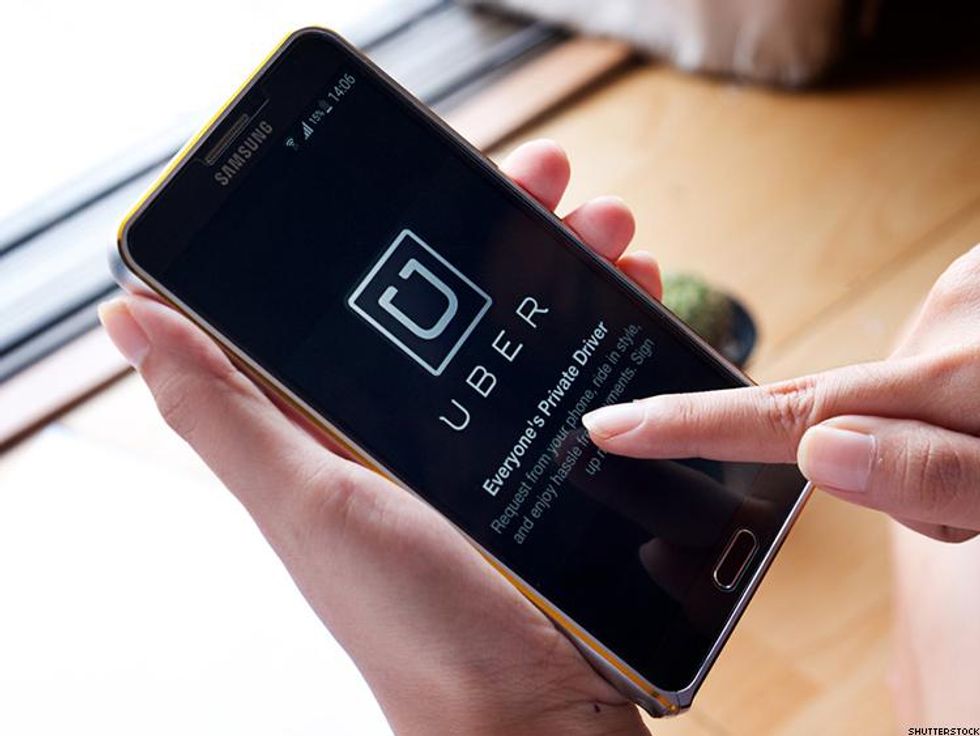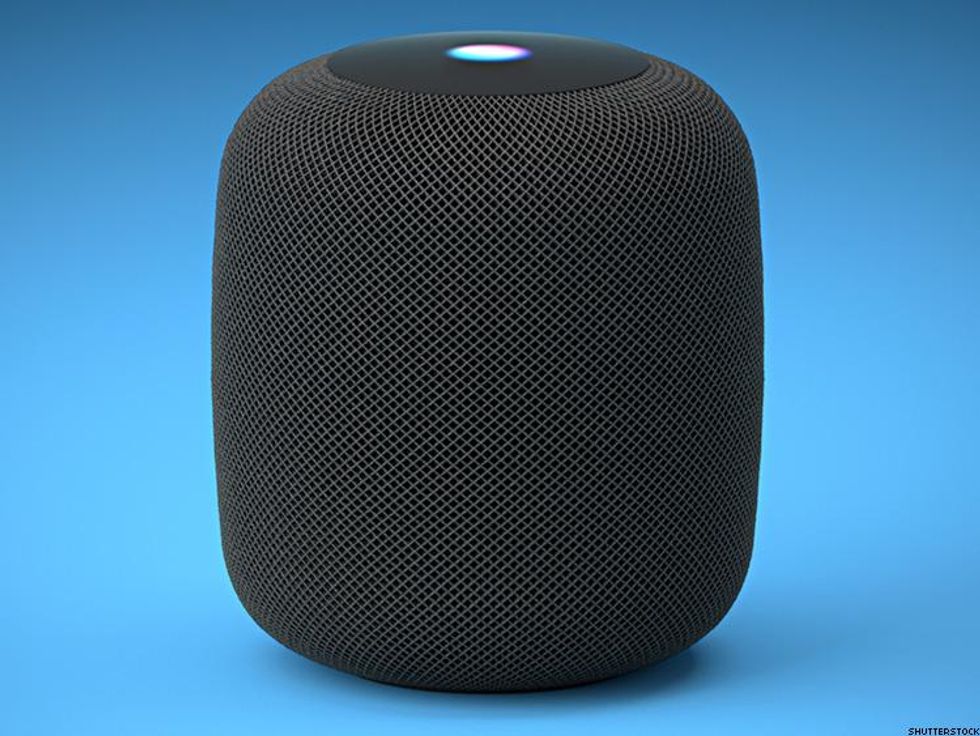It's no great surprise that technology is a force of constant change in our lives. From menial, everyday tasks to multi-billion-dollar industries, the perennial ebb and flow of tech shapes communities big and small. The LGBTQ community is not immune to the influence of technology, often leveraging advancements to improve ourselves and those around us. Increased connectivity, access to information, health education, organizational empowerment--the latest technologies have helped pave the way for major improvements.
As we march into the final half of 2017, industry luminaries are already looking to 2018 for the next batch of tech disruptors. Here's a look at some of these upcoming trends and what they could mean for the LGBTQ community.
1. Virtual Reality
Virtual reality is not just for video games. While 2017 was dominated with news of gaming headsets like Oculus Rift, Playstation VR and Samsung Gear VR, expect 2018 to bring VR beyond game consoles. Facebook-owned Oculus is even planning an untethered, cheaper VR headset for 2018. The implications are endless, but one only needs to look at last year's Pride360 campaign to see the life-affirming impact it could have on the LGBTQ community.
Imagine living in a place where being LGBTQ is dangerous, even illegal; where attending a Pride event is not only impossible, but could be life-threatening. Now imagine putting on a VR headset, where you're transported to a bustling parade, complete with floats, drag queens and like-minded revelers who care for you and support you, even from thousands of miles away.
A very powerful tool, indeed.
2. The On-Demand Economy
We're part of an on-demand economy thanks in large part to companies like Uber, Lyft, Seamless and Amazon. And we shouldn't expect this trend to change anytime soon. In fact, it's expected to become a $57 billion market by 2018. Laundry, pet-grooming, doctor's appointments, pharmacy delivery, groceries--if there's not an app for it already, expect one in the year to come. While some bemoan this "on-demand" advent as laziness, many see this as an opportunity for efficiency and improvement.
For LGBTQ nonprofits, it means more time serving their community and less time shopping for supplies; for LGBTQ people with disabilities, it means increased access to goods and services; for LGBTQ families, it means more time with loved ones and less time worrying about day-to-day errands. The on-demand economy is here, and 2018 is looking as bright as ever.
3. Conversational Commerce
Siri, Cortana, Alexa, Google Now--tech giants have already introduced the world to the notion of conversational commerce via their branded chatbots, albeit rudimentary ones. However, 2018 will see an even greater emphasis on this seemingly gimmicky interaction, with a focus on artificial intelligence and machine learning.
It will no longer be a matter of simply asking Siri the lyrics to a song, it will be a maintenance order, a customer service call, even a doctor's visit--interactions that require not just a simple answer, but a comprehensive and cumulative conversation. Facebook is committed to the future of these interactions; its AI lab is hard at work on chatbots as we speak, grabbing quite a few recent alarmist headlines in the process.
While these advancements are sure to impact many communities, the LGBTQ community can certainly benefit. Tech protege John Browder is working to tackle the issue of homelessness with his chatbot technology, offering legal advice and services to those without housing--an issue vital to the well being of LGBTQ youth, who make up an estimated 40 percent of all homeless youth.
4. Nanotechnology
It may sound like something out of a science-fiction film, but nanobots (microscopic robots, one-billionth of a centimeter in size) are very real and could have life-saving consequences for many. Unlike traditional external treatments, these tiny bots are able to diagnose and even fix ailments from within the human body. Additionally, researchers are developing nanobots from patient DNA, allowing them to interact within a body's systems with unprecedented ease and access.
HIV and AIDS researchers are applying this cutting-edge medical technology to their own work. They hope that nanotechnology could be a key factor in preventing and curing HIV infections and AIDS diagnoses, medical issues that have played a major role in LGBTQ cultural and political landscapes.
As 2018 approaches, there seems to be no stopping the headlong rush of technological progress. But with advancements aimed at improving the lives of people everywhere, including the lives of LGBTQ people, there's every reason to look to the future with hope and optimism.



































